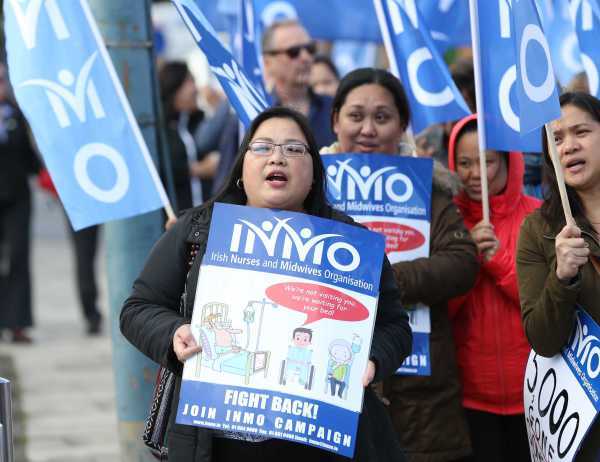This Wednesday, nurses across the country will go on strike for the first time since 1999. Hospital services will be shut down or restricted to a bare minimum of operations, public day centres will be closed, and community nursing services will be cancelled. This disruption has led a small but vocal group of people to decry the strike as too extreme or as a further drain on already impoverished health services. But this point of view, though unfortunately common – even among the student population – is severely lacking in awareness, understanding, and kindness.
Amid the furore of concerns about what Wednesday’s strike will look like, and the deafening ambivalence of editorials and commentaries trying to justify the government’s lacklustre response to nurses’ concerns, it’s easy to forget what’s actually at stake here. While boiling these issues down to their bare essentials is inevitably reductive, it’s worth considering the specific problems the strike aims to address.
Nurses are striking for a variety of reasons, but the one which has seemed most prominent is the simple issue of pay. In Ireland, nurses are paid €7,000 lower than other health professionals with the same qualifications, such as physiotherapists and occupational therapists – a basic disparity that’s difficult, if not impossible, to stand over.
When the nurses strike this Wednesday, they will not just be taking action against the government, or the HSE, or Simon Harris. They will be fighting against a whole system
That’s the first reason why pay is important, but it goes deeper. As Ann Noonan, a senior staff nurse at University Hospital Limerick put it in a recent opinion piece for the Irish Times, “Pay is the solution to this strike, but it is not the cause”. The stagnation of the wages of Irish nurses compared to those abroad has led to high levels of emigration among qualified nurses, contributing to the understaffing problems which currently dog the health service as a whole.
Nurses’ demands, then, are nowhere near unreasonable. The response of those on the sidelines should be one of empathy – of recognition of the struggle faced by fellow human beings and support for their attempts to improve a system that works against them. But empathetic responses are disappointingly uncommon in matters of politics, and other arguments have to be relied upon to win support amid the loud cries from those wish to see the strike brushed under the rug.
One such argument, applicable to the student community, is this: when the nurses strike this Wednesday, they will not just be taking action against the government, or the HSE, or Simon Harris. They will be fighting against a whole system. A system that forces them to take on the work of three times the staff, for half the wages. A system that allows the health service to become functionally and structurally ill-equipped to deal with the problems it faces and gives them no support in dealing with the consequences. A system that encourages those around them to approach the strike with suspicion and annoyance, rather than understanding and compassion.
While boiling these issues down to their bare essentials is inevitably reductive, it’s worth considering the specific problems the strike aims to address
This is not just specific to the health service. It is a system that students from a variety of disciplines are all too familiar with. Pharmacy students, who marched against the ruthlessly exploitative practice of unpaid placements last week, students campaigning against the lack of affordable accommodation with Take Back the City, union officers involved with last week’s meeting to address direct provision in the University of Limerick last weekend: all these and more are engaged in the exact same practice as the striking nurses. All are looking at the injustice around them, and saying enough is enough.
For many students, even attending university is not a given, but something that results from this same struggle against a system desperate to exclude and impede. If last year’s Take Back Trinity campaign showed us anything, it’s that combatting this system is not impossible, but something that can be achieved through support, camaraderie, and sustained, serious action.
The nurses’ strike – and activism, student or otherwise, in general – is about much more than economics. It is about taking a stand against a system that emphasises competition, pressure and exploitation to the exclusion of all else asking instead for a little bit of compassion to be thrown into the mix. Extreme or not, that deserves to be celebrated.







